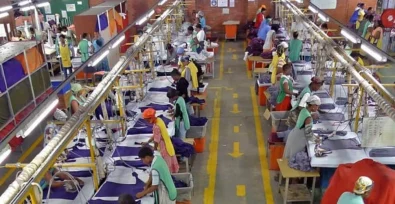The launch of the latest Global Slavery Index this week by anti-modern slavery and international human rights group Walk Free paints a stark picture. An estimated 50 million people around the world are living in conditions of modern slavery and while the U.K. topped the report’s list of countries that have taken the most action against modern slavery, it remains complicit in perpetuating these injustices both at home and through global supply chains.
Importing tainted goods
Nasreen, a survivor of forced child labor and co-director of the anti-modern slavery U.S. organization Empowerment Collective, explained to Sky News how modern slavery is woven into global supply chains and exported in products that end up in high-income countries. She said:
“Forced labour is found in low-income countries, but it is deeply connected to demand from higher income countries,” she said.
“These people are hidden, invisible. They don’t have a voice. They are so traumatised they can’t speak for themselves.”
Though the estimated number of people living in modern slavery in the U.K. is around 122,000, this number doesn’t take into account the number of people in forced labor globally toiling in the production of goods for U.K. consumption. The U.K. imports approximately £21 billion worth of goods at risk of being made with forced labor, including electronics, timber, textiles, and fabric.
Escaping child marriage to fall into forced child labor
Nasreen has first-hand experience of what it is like to be exploited on the sharp end of supply chains, forced to work in a sweatshop producing garments for global export.
As a child in Nepal, Nasreen watched her terrified 12-year-old sister forced into marriage. Her mother assured her that she would be next. At nine years old and with the help of a cousin, Nasreen fled from her rural home in Nepal to Kathmandu. She had no record of birth and hence no identification documents. She was hired at a sweatshop where she recounts working 15 hours a day.
Nasreen told Megan Baynes on Sky News:
“I was looking for freedom and a better life and I ended up as forced child labour, in one of these tiny rooms in a textile factory with six others – it was loosely regulated, no windows and the doors locked,”
Though she managed to escape with the help of a mentor, she acknowledged that the depth of ingrained cultural beliefs surrounding certain practices is complex and not easily overcome. Nasreen explained:
“I asked my mother why are you forcing my sister and she said that it’s not that I’m doing it – this is how our culture is.
“This is how our society is – this is what happened to me, this is what happened to your sister, next it will happen to you.”
“Child labour and modern-day slavery are so normalised in our part of the world,” she added. “A lot of victims don’t see it as an issue because the trauma is normalised too.”
The U.K. has much work to do
Despite countries’ efforts to combat modern slavery, no government is doing enough to reach the UN Sustainable Development Goal 8.7. to end modern slavery, forced labor, and human trafficking by 2030.
Though it may have topped the Global Slavery Index’s list of countries taking action against modern slavery, the reality facing modern slavery survivors in the U.K. is bleak. The U.K. government appears committed to slashing protections for modern slavery victims through the Refugee Ban Bill which is currently making its way through parliament. This proposed legislation has been widely criticized and the UN Refugee Agency has warned that this bill will undermine the international refugee protection system if passed in its current form.
This is compounded by an onslaught of damaging and harmful rhetoric from the U.K. government against modern slavery survivors and migrated people. Freedom United is urgently calling on the U.K. and all governments to stop using damaging anti-trafficking rhetoric to justify increasingly restrictive immigration policies that undermine victims’ rights.
Take action
The Freedom United community is calling for the passage of mandatory human rights due diligence legislation in the U.K. to help address human rights and environmental violations around the world and enable workers in supply chains to access justice. Sign the petition today.







Freedom United is interested in hearing from our community and welcomes relevant, informed comments, advice, and insights that advance the conversation around our campaigns and advocacy. We value inclusivity and respect within our community. To be approved, your comments should be civil.